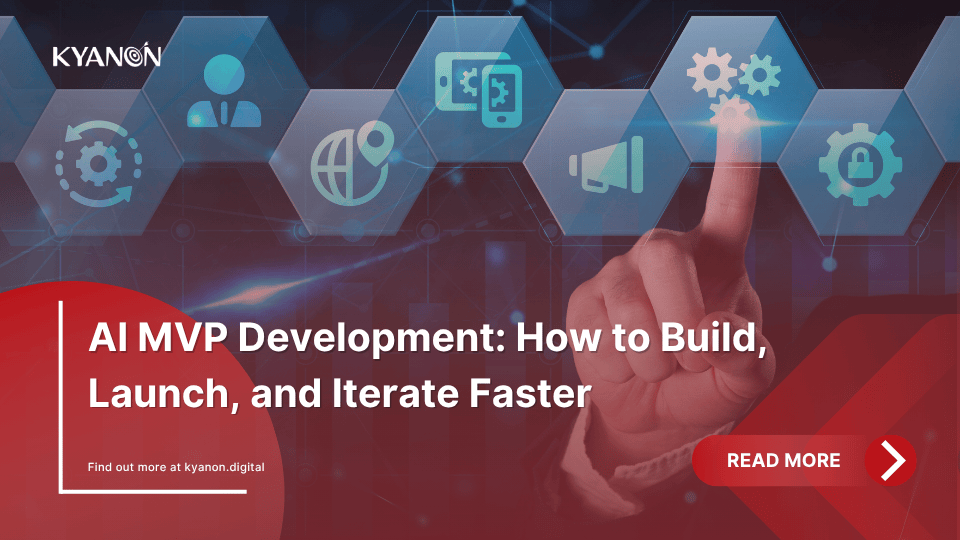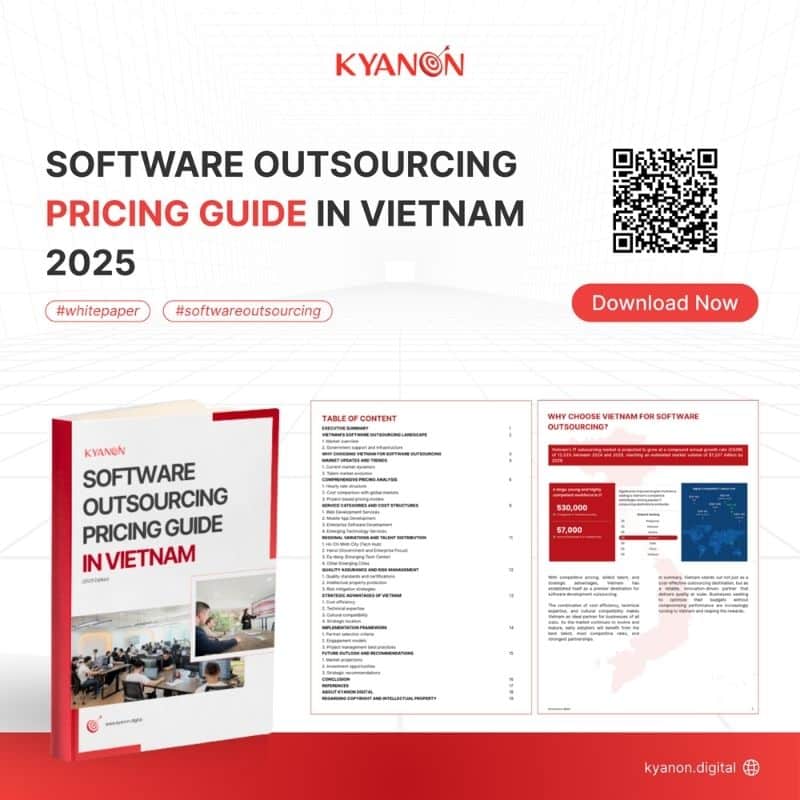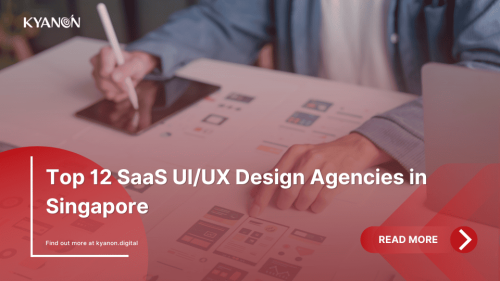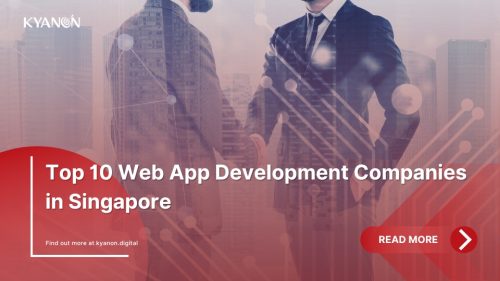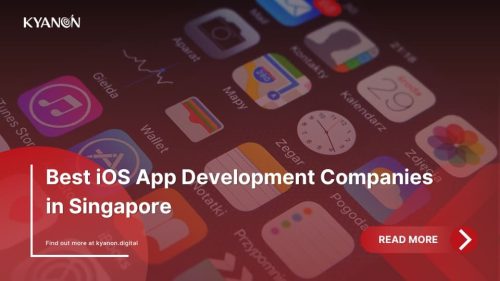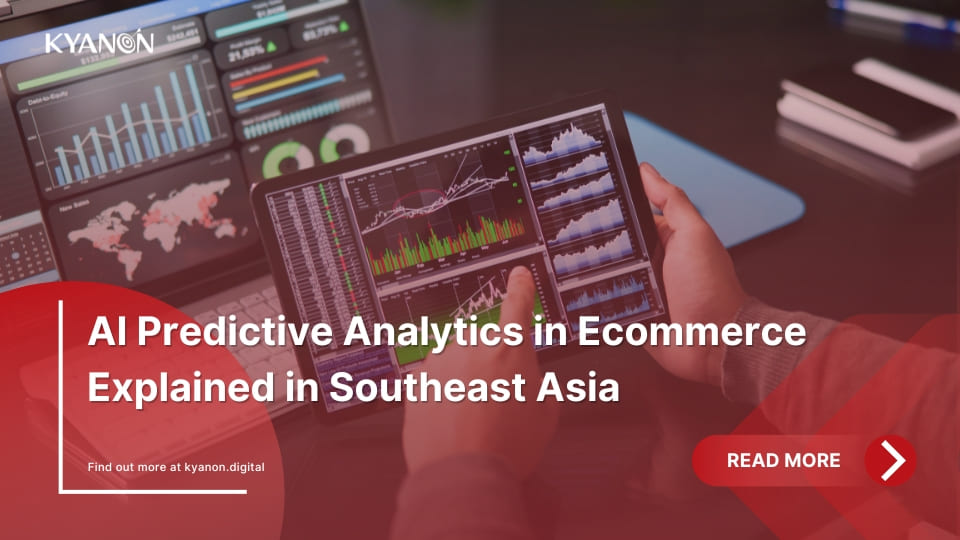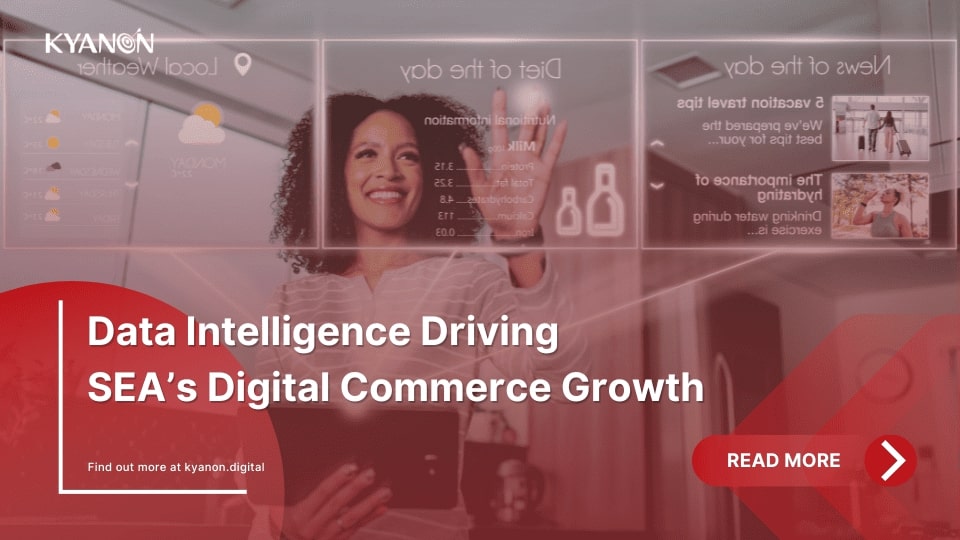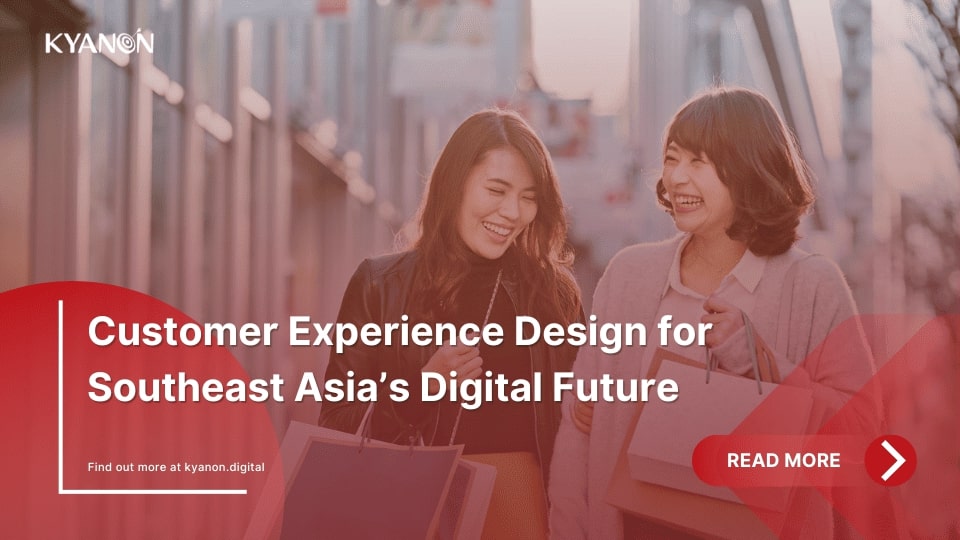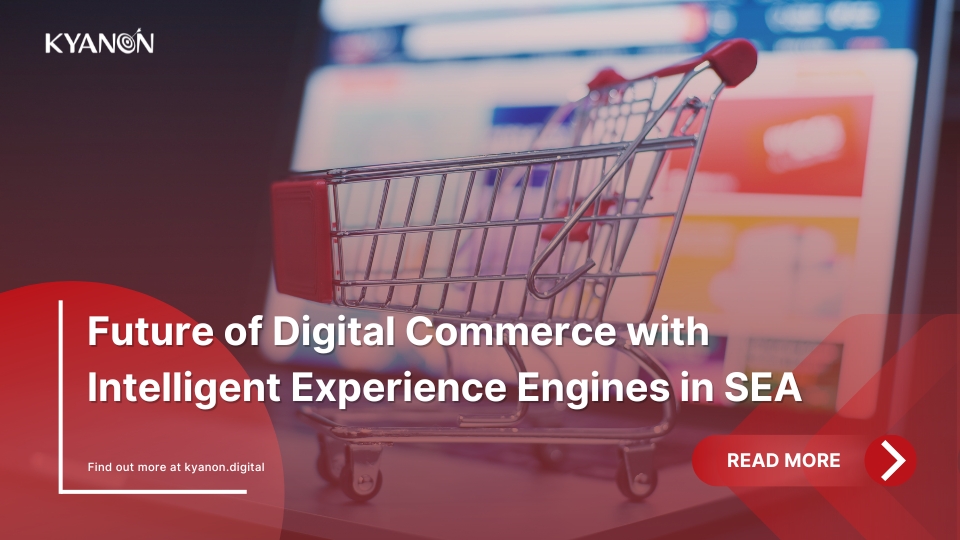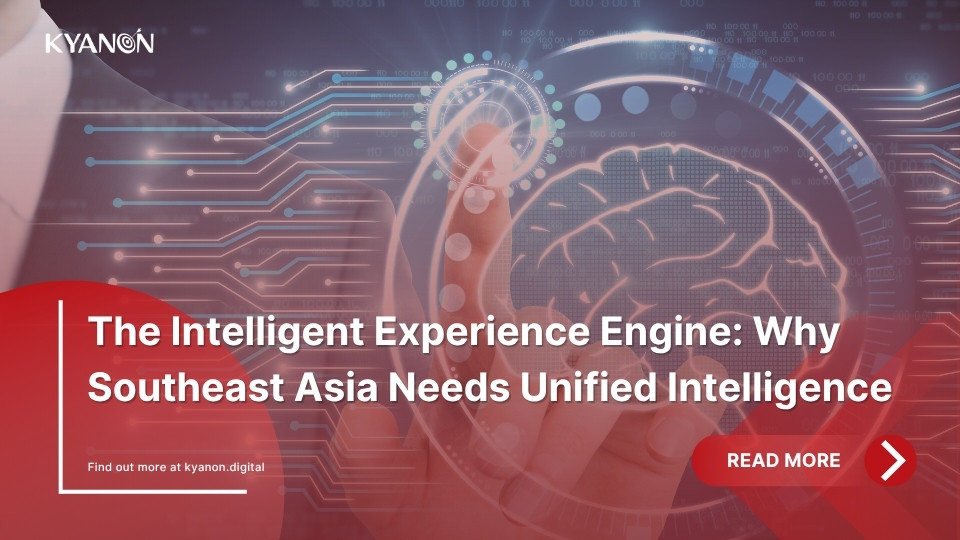In today’s innovation-driven tech landscape, AI MVP development empowers startups and enterprises with a fast, data-driven approach to validating ideas and scaling efficiently. By leveraging the right tools and strategies to build MVPs with AI, businesses can reduce risk, speed up go-to-market, and test real-world value before committing to full-scale development.
Whether you’re a founder exploring AI’s potential or an AI MVP builder aiming to accelerate development cycles, this blog will walk you through real-world use cases, key considerations, and success stories that show how a well-executed AI MVP can deliver measurable business impact, quickly and effectively.
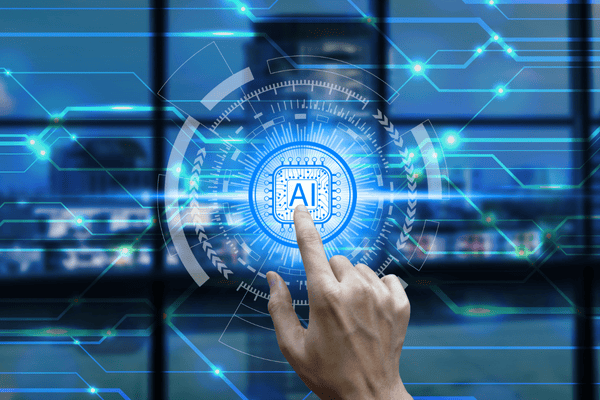
Key Takeaways
- Problem: AI product development often suffers from long build cycles, unclear scope, and unvalidated assumptions, leading to wasted resources and slow time-to-market.
- Solution: A lean, iterative MVP approach helps teams validate core ideas quickly using real data, with minimal upfront investment.
- Step: Start with a specific, high-impact user problem that AI can address effectively, don’t overbuild from the beginning. Leverage existing large language models and Retrieval-Augmented Generation to reduce development time and boost performance from day one.
- Outcome: Teams can launch functional AI MVPs in weeks, not months, gain early user feedback, and evolve the product based on real-world usage.
Further reading:
- AI in Ecommerce and Retail: Trends, Use Cases, and Business Impact
- AI in Banking and Financial Services: Trends, Use Cases & Market Impact
- AI in BFSI: Trends, use cases, and strategic impact
What is an AI MVP?
An AI MVP (Minimum Viable Product) is a lean version of a product that uses artificial intelligence to deliver core value while requiring minimal resources to develop. Unlike traditional MVPs, which focus on manual or non-scalable operations to validate a concept, an AI MVP integrates machine learning or other AI technologies from the start to:
- Automate key features
- Test feasibility of AI models
- Showcase AI-powered differentiation
AI MVPs are particularly useful for testing assumptions in data-heavy domains such as predictive analytics, recommendation engines, NLP-powered tools, and generative applications.

Transform your ideas into reality with our services. Get started today!
Our team will contact you within 24 hours.
The benefits of building an MVP with AI
Embracing AI in MVP development empowers companies to move faster, smarter, and more competitively in today’s evolving markets. Here are the transformative advantages AI delivers across the MVP lifecycle.
In the latest McKinsey Global Survey on AI, 65% of organizations report they are regularly using generative AI, nearly double from ten months prior. Three-quarters of respondents expect GenAI to cause significant or disruptive change in their industries moving forward.
The rising popularity of generative AI has renewed focus on a broader range of AI capabilities. After several years of steady adoption rates near 50%, this year’s McKinsey survey reveals a significant jump to 72%. This growth is not limited to specific regions, AI adoption now exceeds two-thirds of respondents in almost every part of the world, a notable rise from 2023 when no region surpassed 66%. Among industries, professional services show the most substantial increase in AI integration.
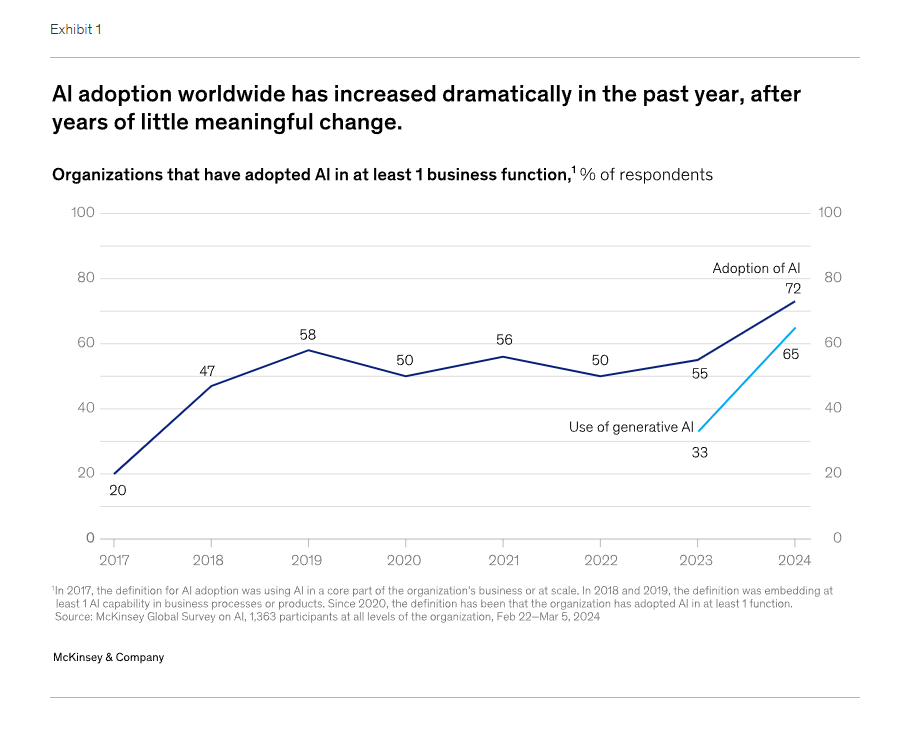
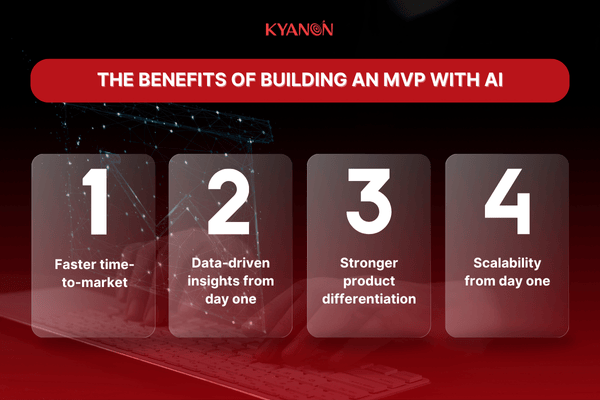
Faster time-to-market
Gartner predicts that 80% of generative AI business apps will be developed on existing data management platforms by 2028, which will reduce complexity and cut delivery time by 50%.
By leveraging pre-trained models (e.g., OpenAI, HuggingFace) and readily available AI APIs (e.g., AWS, Google Vertex AI), companies can skip lengthy R&D cycles and deploy functional prototypes in weeks instead of months. This agility enables early validation and faster user testing.
Data-driven insights from day one
Unlike traditional MVPs that rely on manual feedback loops, AI-powered MVPs can automatically gather, analyze, and act on user data from the first interaction. By integrating tools like Mixpanel, Amplitude, or building custom dashboards with embedded ML, you can instantly validate hypotheses, track cohort behavior, and iterate in real time.
Pro Tip: Use AI models to identify drop-off points, feature friction, and usage anomalies, then prioritize iterations based on predictive impact, not gut feeling.
Stronger product differentiation
In competitive markets, AI can power unique features such as real-time personalization, intelligent automation, or predictive suggestions. These AI capabilities help you stand out early and build defensible IP or competitive moats, especially in crowded verticals like SaaS, fintech, or e-commerce.
McKinsey research shows AI-driven personalization can boost revenue by 10-15%, highlighting the impact of AI on customer experience and revenue growth through personalization
Scalability from day one
AI enables automation of processes that would otherwise require manual or human-intensive support at scale, such as customer support chat, fraud detection, or data processing. An AI-enhanced MVP is not only leaner at launch, but also ready to scale operationally without a proportional increase in costs.
The AI MVP development process
Developing an AI MVP is not just about building fast, it’s about building the right thing, with the right data, using the right models, and validating it in the right way. At Kyanon Digital, we follow a structured and iterative process designed to help businesses de-risk innovation while accelerating time-to-market.
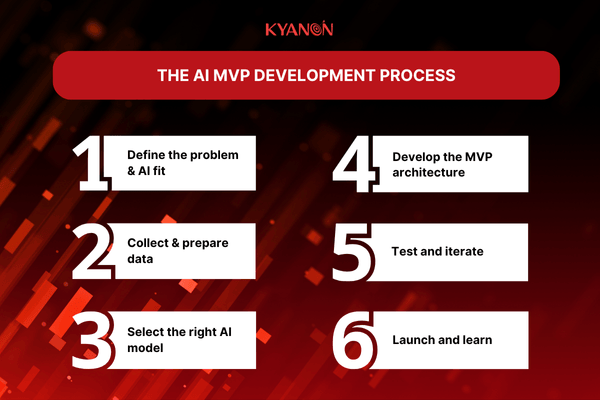
Step 1: Define the problem & AI fit
Begin by identifying a clear user pain point and validating whether AI is the best way to solve it. Not every problem needs AI, prioritize use cases where machine learning, natural language processing, or generative AI can create a unique advantage (e.g., automation, personalization, prediction). Align this step with your strategic goals and customer needs.
Step 2: Collect & prepare data
Data is the lifeblood of any AI MVP. Audit your existing datasets for availability, structure, and quality. In the absence of sufficient real data, use synthetic datasets or open datasets to train your initial models. Ensure that your data pipeline includes proper labeling, privacy compliance (GDPR, HIPAA), and readiness for scaling.
Step 3: Select the right AI model
Choose an AI model that fits your use case and data. This could involve:
- Pre-trained foundation models like OpenAI GPT, Meta’s LLaMA, or Google Gemini.
- Open-source libraries such as HuggingFace Transformers or spaCy.
- Custom ML models using TensorFlow, PyTorch, or scikit-learn.
Balance performance, explainability, and compute efficiency. Consider integrating MLOps practices early for future scalability.
Step 4: Develop the MVP architecture
Design a modular, cloud-native MVP architecture that separates your AI model layer from business logic and the frontend. Use microservices, RESTful or GraphQL APIs, and containerization (Docker, Kubernetes) to allow faster iteration. Incorporate third-party AI services (e.g., Google Vertex AI, AWS Bedrock) if building from scratch isn’t viable.
Step 5: Test and iterate
Run frequent tests using real-world scenarios. Use A/B testing, user interaction analysis, and performance benchmarks to evaluate your model. Monitor metrics such as accuracy, latency, fairness, and explainability. Continuously fine-tune the model based on usage data and user feedback to prevent model drift.
Step 6: Launch and learn
Deploy your AI MVP using CI/CD pipelines on scalable cloud platforms (e.g., AWS, GCP, Azure). Implement real-time analytics dashboards to monitor user behavior, system performance, and model accuracy. Use this data to plan new feature iterations, pivot directions, or transition to a full-scale product.
This modular and measurable approach ensures that you not only go to market faster but also build with confidence, backed by data and scalability from day one.
AI MVP builders and development services
If you lack in-house AI expertise, partnering with a specialized AI MVP builder is a smart move. These providers offer:
- Prebuilt AI components for faster prototyping
- AI consultants for architecture guidance
- Model training and MLOps setup
- Cloud-based deployment and scaling support
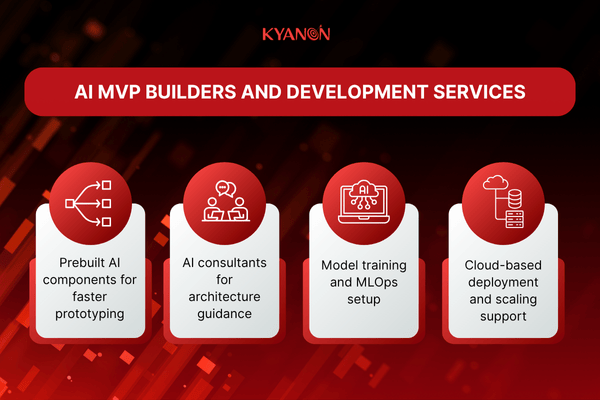
Popular AI MVP development platforms & frameworks:
No-code/Low-code platforms
- Bubble – Web apps without coding
- Adalo – Mobile app builder
AI frameworks
- TensorFlow – ML models, recommendation systems
- PyTorch – NLP, computer vision
- Django / Ruby on Rails / Laravel – Backend web frameworks
- Next.js / Vue.js – Frontend frameworks
AI APIs & services
- OpenAI API – NLP, chatbots, content generation
- IBM Watson – AI services, sentiment analysis
- Hugging Face – Pre-trained language models
- Dialogflow – Conversational AI
- HeyGen – AI-generated video avatars
Other tools
- FastAPI – Quick AI prototyping
- Firebase – Backend & deployment
- AWS SageMaker / Google Cloud AI Platform – Model deployment
- Scikit-learn / XGBoost – Predictive analytics
These platforms accelerate AI MVP creation by simplifying development and integration.
Real-world use case of AI MVP development at Kyanon Digital
The solution provided by Kyanon Digital is an AI-powered LegalTech platform designed to simplify legal consulting, automate document generation, and streamline legal information retrieval, delivering an accurate, user-friendly, and efficient experience for both individuals and legal professionals.
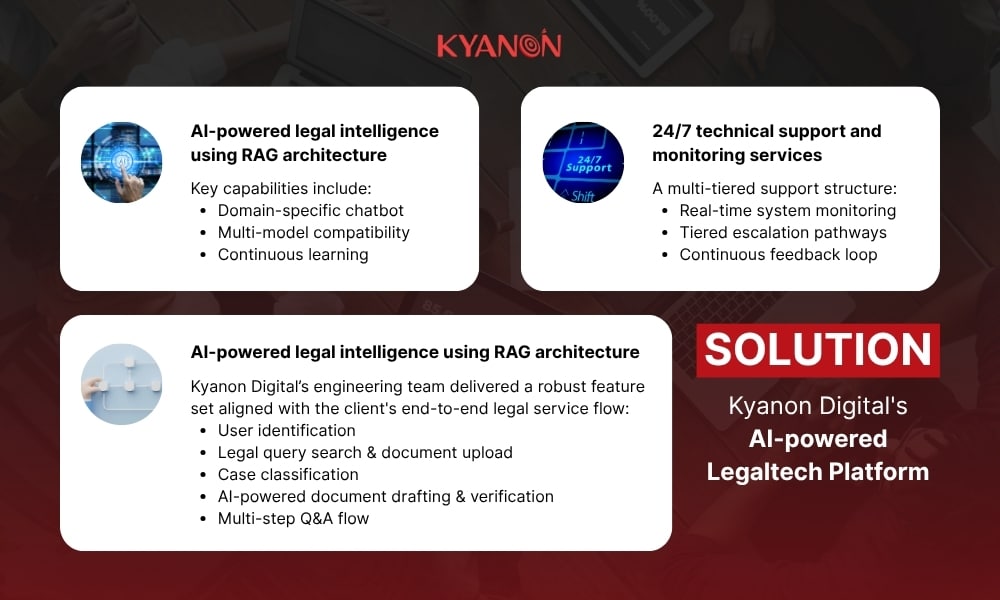
AI-Powered Legal Chatbot (MVP Phase)
Built on a Retrieval-Augmented Generation (RAG) architecture, the chatbot combined LLM capabilities with a curated legal knowledge base, offering accurate, role-specific legal responses (for individuals and legal professionals).
Modular Legal Workflow Automation
The MVP automated core legal tasks:
- Case classification
- Document drafting and verification
- Legal Q&A flows
- Personalized insights based on uploaded documents
Scalable & Supported Architecture
- Integrated with multiple LLMs (ChatGPT, Gemini, etc.)
- Real-time monitoring & tiered support
- Continuous learning from anonymized user behavior
Read the full case study here.
Key considerations for a successful AI MVP
Launching fast is important, but launching smart is critical. For your AI MVP development to deliver measurable business value and support long-term growth, every AI MVP builder must address these five essential pillars.
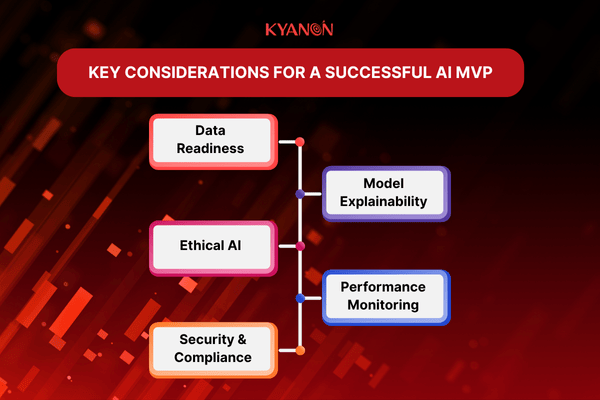
1. Data readiness
A successful AI MVP starts with data. Without clean, labeled, and sufficient data, even the best AI models will fail to deliver accurate results. According to AlphaBold, nearly 85% of AI projects fail to deliver due to poor data quality. It’s why data teams spend up to 80% of their time on AI data preparation, not just to clean but to prepare data so that models can learn from it efficiently
Before you build an MVP with AI, assess your data sources:
- Is your data relevant to the use case?
- Is it structured and labeled for training or inference?
- Can you augment it with external or synthetic data?
Data quality directly impacts model performance, so this is a non-negotiable step in MVP AI development.
2. Model explainability
In AI-driven products, especially in regulated industries like finance or healthcare, trust and transparency matter. Stakeholders such as users, managers, and regulators need to understand how the model makes decisions. According to PwC report, a significant portion of business leaders require explainability before fully embracing AI in critical decisions. It emphasizes that as AI complexity and impact increase, the need for explainability rises because stakeholders demand clarity on how AI arrives at decisions to trust and adopt it
Choose models or architectures that allow for interpretability. Incorporate explainable AI (XAI) techniques such as SHAP or LIME to help users trust the outputs of your AI MVP.
3. Ethical AI
Bias in AI can erode user trust and lead to serious legal or reputational risks. A responsible AI MVP builder should assess:
- Are there biased patterns in the training data?
- Are predictions fair across demographics?
- Does the AI treat users equitably regardless of background?
Embedding fairness from day one helps ensure your AI MVP development stays on the right side of ethics and public scrutiny.
4. Performance monitoring
Once your MVP AI is live, the work isn’t over. Models can drift, especially in dynamic environments. Set up performance monitoring and feedback loops to track:
- Accuracy over time
- User feedback and complaints
- Misclassified or low-confidence results
Ongoing tuning is key to maintaining quality and gaining user confidence in your AI system. McKinsey’s research and reports on AI and technology programs do highlight significant challenges and failure rates in technology implementations and AI deployments.
5. Security & compliance
If your AI MVP processes sensitive data, ensure full compliance with data protection laws like GDPR, HIPAA, or PDPA. Ask:
- Are user data encrypted and anonymized?
- Do you store only necessary data?
- Is there consent and audit logging?
Failing to plan for security in AI MVP development can result in fines, breaches, and loss of user trust.
How to select the right AI MVP development partner
Choosing the right partner is one of the most critical steps in AI MVP development. A trusted partner not only helps you build an MVP with AI efficiently but also ensures long-term scalability and real business impact. Whether you’re a startup or enterprise, the success of your AI MVP often hinges on the expertise and structure of your development team.
Here’s what to look for in an ideal AI MVP builder.
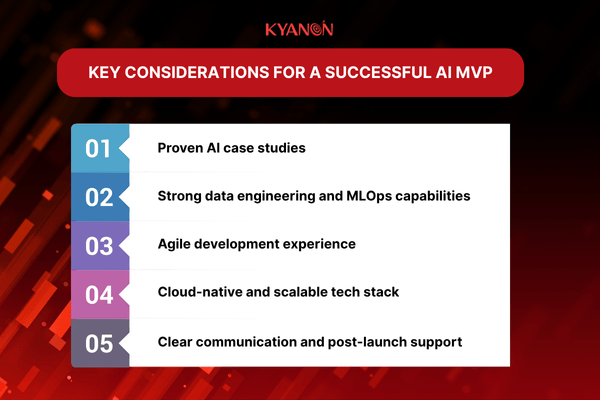
1. Proven AI case studies
Look for a track record of successful AI MVPs across industries. Real-world examples demonstrate a partner’s ability to solve domain-specific problems and validate ideas quickly.
2. Strong data engineering and MLOps capabilities
A great MVP AI partner must be skilled in handling data pipelines, model training, deployment, and monitoring. These are core to building robust, production-ready AI MVPs.
3. Agile development experience
Agile processes are crucial in AI MVP development, enabling faster iterations, continuous feedback, and quicker go-to-market. Choose a partner with a strong agile culture and lean delivery mindset.
4. Cloud-native and scalable tech stack
Modern AI MVPs demand cloud-native infrastructure and scalable architectures. A capable AI MVP builder will use technologies that support rapid deployment and future expansion.
5. Clear communication and post-launch support
Transparent collaboration, regular updates, and strong post-MVP support are essential to the long-term success of your AI MVP. Make sure your partner can offer continuous improvement through performance monitoring and retraining.
Kyanon Digital: Your AI MVP development partner
At Kyanon Digital, we specialize in building AI MVPs that deliver business impact quickly. Our cross-functional teams of AI engineers, product managers, and UX designers help you:
- Rapidly prototype and validate your AI concept
- Build scalable MVPs using the latest AI/ML tools
- Ensure ethical, secure, and compliant AI models
- Iterate fast with agile methodologies
From generative AI to predictive analytics, we transform your ideas into real-world applications with measurable results.

What makes Kyanon Digital different?
- Human-Centric Design: We design solutions that are intuitive, impactful, and crafted to solve real-world challenges while enhancing user experiences.
- Engineering Excellence: With our Center of Excellence (CoE) driving innovation, we deliver scalable, reliable, and future-ready digital solutions.
- High-performance Agile Teams: Our expert teams seamlessly integrate with yours, combining technical expertise, agile mastery, and transparent collaboration to deliver adaptable, high-impact results.
Let’s build your AI MVP together. Contact us now to get started.
References
- The state of AI in early 2024: Gen AI adoption spikes and starts to generate value, McKinsey & Company
- Gartner Predicts by 2028, 80% of GenAI Business Apps Will Be Developed on Existing Data Management Platforms, Gartner
- 10X Your Growth with AI: Unlock McKinsey-Level Strategies Now!, Nick Palomba
- The Complete Guide to Preparing Your Data for AI Success, AlphaBold
- Explainable AI report, PwC

